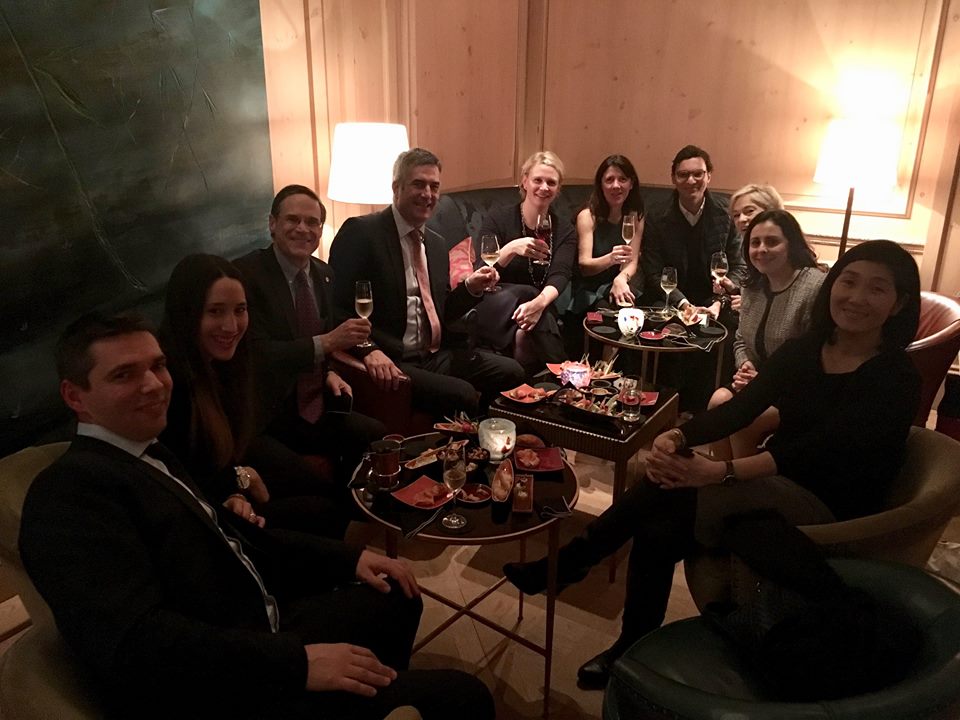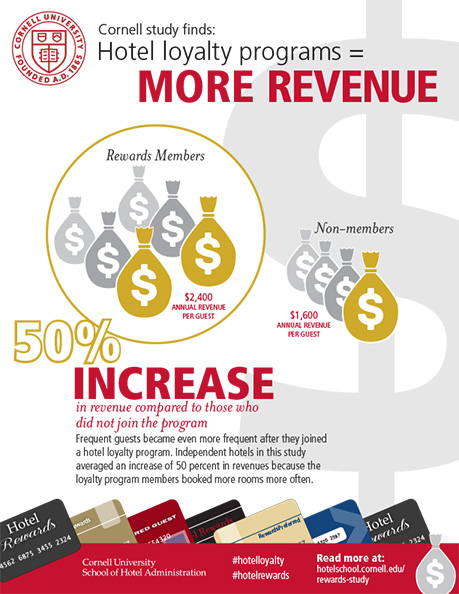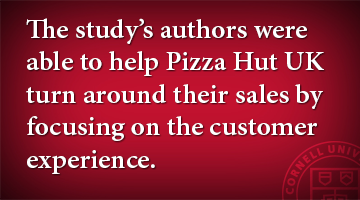
By Sherrie Negrea
The Leading Hotels of the World, Ltd. (LHW) describes itself as a company that “offers all kinds of one-of-a-kind luxury hotels, resorts and spas.” The 430 independent hotels that are part of the consortium, however, all use the same marketing, sales network, and reservation system as part of their membership in the New York-based company.
The benefit of the membership can be optimized if the hotels take advantage of the services provided by LHW, which includes support in 25 cities around the globe. To gauge how the hotels were using its offerings, LHW decided that creating a hotel engagement scorecard would be one of its four goals for 2014.
 Ted Teng ’79, president and chief executive officer of LHW, suggested the company work with the Leland C. and Mary M Pillsbury Institute for Hospitality Entrepreneurship at SHA to research how a measurement tool could be created to evaluate the member hotels’ engagement. Teng, who has led the company since 2008, is a member of the advisory board of the Pillsbury Institute.
Ted Teng ’79, president and chief executive officer of LHW, suggested the company work with the Leland C. and Mary M Pillsbury Institute for Hospitality Entrepreneurship at SHA to research how a measurement tool could be created to evaluate the member hotels’ engagement. Teng, who has led the company since 2008, is a member of the advisory board of the Pillsbury Institute.
Top-notch students bring a fresh perspective
“We knew the quality of the students,” said Deniz Omurgonulsen ’00, the company’s vice president for membership. “We knew they would bring a fresh perspective and an opportunity to test the measurement of engagement to results.”
Last January, Mona Anita Olsen ’04, assistant academic director of the Pillsbury Institute, started to work with MBA student, Saniya Gandhi’15, to conduct the research for the engagement tool in an independent study project. Before starting her MBA program, Gandhi had spent three years working with her family in Thailand to develop a hotel in the heart of Bangkok.
During the spring semester, Gandhi worked with the executive team in New York to build a computer-based scorecard to measure the level of engagement among the member hotels with the company’s services. Gandhi interviewed managers at selected hotels across the world, from South Africa to the Caribbean, which the company considered “highly engaged,” said Hakan Ozakbas, the company’s director of analytics.”We wanted to talk to them to find out about their best practices and how other hotels could learn and leverage that same behavior,” Ozakbas said.
In May, Gandhi and Olsen presented her engagement scorecard — a tool that measures a hotel’s engagement in membership, distribution, sales, and marketing — to the company’s executive team in New York. A score of 100 would be awarded to hotels that were highly engaged in using the services provided by LHW.
 “We never had an engagement scorecard before,” Omurgonulsen said. “We only had quality inspections taking place once a year and financial reporting that was separate. The whole idea of the scorecard was that it would take into account other components such as finance, operations, and engagement to give us a holistic view of performance.”
“We never had an engagement scorecard before,” Omurgonulsen said. “We only had quality inspections taking place once a year and financial reporting that was separate. The whole idea of the scorecard was that it would take into account other components such as finance, operations, and engagement to give us a holistic view of performance.”
LHW believes in many cases that increasing the engagement will boost a hotel’s performance. LHW recommends that the hotels increase their engagement in as many different services suitable for their business needs in order to optimize their revenue.
“It’s a two-way street,” Ozakbas said. “The hotels need help generating that revenue. How are they going to get that help? They need to be engaged in each of those four attributes.” Now that the scorecard has been completed, LHW plans to run the tool on salesforce.com, a platform it already uses. As the tool is implemented by the company in 2015, it is expected to have a significant impact on the way the company works with its member hotels.
“It will change the conversations once we look at the results for each of our properties,” Ozakbas said. “It will provide us with a more systematic tool to better evaluate how each point of engagement contributed to the revenue growth for each property.”
You can make a global hospitality impact too. Sign up with the Connect Entrepreneurial Hotelies Mentor Network.









 March 18-20, 2016
March 18-20, 2016 Staying true to the Millennials trend, the outstanding educational seminars were live-streamed through Periscope and included Keeping Up with the New Consumer, The Evolution of Diversity, and Demystifying the Digital Marketplace.
Staying true to the Millennials trend, the outstanding educational seminars were live-streamed through Periscope and included Keeping Up with the New Consumer, The Evolution of Diversity, and Demystifying the Digital Marketplace.
 This competition, made possible by a deal that the Changs brokered between Entrepreneurship@Cornell and Will it Launch, will look for the next big “it” idea among Cornell students and alumni and will connect the winner directly to both funding and to the people who can bring it to market. The Changs’ biggest regret is not going to their CHS network sooner, so they are thrilled at the chance to help others by smoothing the way for fellow Cornell students and alumni.
This competition, made possible by a deal that the Changs brokered between Entrepreneurship@Cornell and Will it Launch, will look for the next big “it” idea among Cornell students and alumni and will connect the winner directly to both funding and to the people who can bring it to market. The Changs’ biggest regret is not going to their CHS network sooner, so they are thrilled at the chance to help others by smoothing the way for fellow Cornell students and alumni.
 The main limitation is the focus on the third-party
The main limitation is the focus on the third-party  Lou Carbone, CEO of Experience Engineering, came to share his work with Professor Kathy LaTour’s marketing classes (services marketing, principles of marketing). Carbone and LaTour have been working together on various projects for the last fifteen years, after meeting at the Mind of the Market Lab at the Harvard Business School.
Lou Carbone, CEO of Experience Engineering, came to share his work with Professor Kathy LaTour’s marketing classes (services marketing, principles of marketing). Carbone and LaTour have been working together on various projects for the last fifteen years, after meeting at the Mind of the Market Lab at the Harvard Business School.
 Ted Teng ’79, president and chief executive officer of LHW, suggested the company work with the Leland C. and Mary M Pillsbury Institute for Hospitality Entrepreneurship at SHA to research how a measurement tool could be created to evaluate the member hotels’ engagement. Teng, who has led the company since 2008, is a member of the advisory board of the Pillsbury Institute.
Ted Teng ’79, president and chief executive officer of LHW, suggested the company work with the Leland C. and Mary M Pillsbury Institute for Hospitality Entrepreneurship at SHA to research how a measurement tool could be created to evaluate the member hotels’ engagement. Teng, who has led the company since 2008, is a member of the advisory board of the Pillsbury Institute. “We never had an engagement scorecard before,” Omurgonulsen said. “We only had quality inspections taking place once a year and financial reporting that was separate. The whole idea of the scorecard was that it would take into account other components such as finance, operations, and engagement to give us a holistic view of performance.”
“We never had an engagement scorecard before,” Omurgonulsen said. “We only had quality inspections taking place once a year and financial reporting that was separate. The whole idea of the scorecard was that it would take into account other components such as finance, operations, and engagement to give us a holistic view of performance.” “Every day, do the right thing. It’s been the core value that I’ve tried to live by. The right thing is often not the easiest thing to do, but I assure you it is the thing that will build your reputation amongst your peers. People will always hear what you say, but they will see what you do. And if you do the right thing, day in and day out, people will want to follow you and you will do great things in your career.”
“Every day, do the right thing. It’s been the core value that I’ve tried to live by. The right thing is often not the easiest thing to do, but I assure you it is the thing that will build your reputation amongst your peers. People will always hear what you say, but they will see what you do. And if you do the right thing, day in and day out, people will want to follow you and you will do great things in your career.” “There is honor and nobility in work, and I think we forget that at times. Find a job that makes you feel fulfilled and proud of what you do.”
“There is honor and nobility in work, and I think we forget that at times. Find a job that makes you feel fulfilled and proud of what you do.” “No matter what industry you are in, people skills are invaluable. Now matter who I work with or who works for me, it’s important to put yourself into their shoes and understand what they encounter and some of their challenges—and then figure out how to support them appropriately.”
“No matter what industry you are in, people skills are invaluable. Now matter who I work with or who works for me, it’s important to put yourself into their shoes and understand what they encounter and some of their challenges—and then figure out how to support them appropriately.” “Success is about being who you are, being your whole self and having an openness to not only approach each interaction, but be who you are in each of these circumstances. Be unafraid—if you don’t know something, or if a direct question is asked of you and you don’t have the content, ask questions. It’s imminently more valuable than having the right answer.”
“Success is about being who you are, being your whole self and having an openness to not only approach each interaction, but be who you are in each of these circumstances. Be unafraid—if you don’t know something, or if a direct question is asked of you and you don’t have the content, ask questions. It’s imminently more valuable than having the right answer.” “You have to equip people to make good decisions and then you have to hold them accountable for their decisions. Communicate what the right thing to do is, incentivize people to do the right thing, and then reward them when they do the right thing… Those same tenets of leadership can be applied at any level that someone would be leading at.”
“You have to equip people to make good decisions and then you have to hold them accountable for their decisions. Communicate what the right thing to do is, incentivize people to do the right thing, and then reward them when they do the right thing… Those same tenets of leadership can be applied at any level that someone would be leading at.”